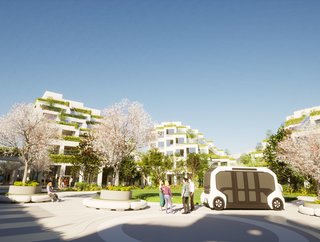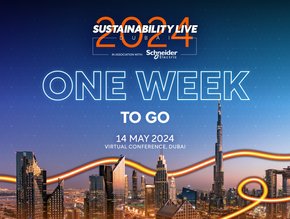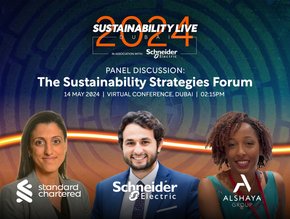Toyota’s smart, sustainable concept city of the future

The seeds of the Woven City were sown in 2011, after the Great East Japan Earthquake decimated the area of a manufacturing centre and the Higashi-Fuji Plant was moved to the Tohoku area. Before the move, the plant had produced over 7m vehicles and was a “a driving force in the motorisation of Japan.”
Toyota has been present in Japan for over 50 years, with manufacturing centres and corporate bases in the country creating employment and investing in community - The Toyota School programme, established in 1977 has educated over 40,000 young minds.
The plant relocation inspired the creation of Woven City, a hub of sustainability, community and mobility designed by Danish architect Bjarjk Ingels and inline with Toyota’s global sustainability promises.
Electricity for the Woven City is primarily generated by hydrogen powered fuel cells, like Toyota’s Mirai vehicle, in an effort to reduce emissions.
"Building a complete city from the ground up, even on a small scale like this, is a unique opportunity to develop future technologies, including a digital operating system for the city’s infrastructure,” says Akio Toyoda, president, Toyota Motor Corporation. “With people, buildings and vehicles all connected and communicating with each other through data and sensors, we will be able to test connected AI technology… in both the virtual and the physical realms… maximising its potential."
The Woven City, named for Toyota’s belief that sustainability and technology needs to be woven into the fabric of our future, has begun as home to around 300 residents but will swell to thousands.
The development of the city, despite looking firmly to the future, featured many traditional Japanese woodworking techniques and recycled wood and other materials.
Sustainable tourism for Thailand
Toyota has just partnered with Pattaya City to develop the city as an electric tourism hub, utilising the development of sustainable energy to enhance service efficiency, reduce costs, and minimise the ecological impact of the city’s operations.
Sustainable transport lies at the centre of the city’s developments, including electric buses as the city trials electric baht-busses.
The undertaking falls under criteria from the Decarbonised Sustainable City Development Project, created in 2020 to promote sustainable urbanisation
Following in the footsteps of the Woven City’s fuel generation, Toyota and Pattaya City aim to establish Thailand’s first hydrogen refuelling station for fuel cell electric vehicles, establishing infrastructure for longevity for the development. As electric vehicles grow in popularity, the consistent question is how the infrastructure of charging stations can keep up with the demand.
The partnership aims to pave the way for sustainable tourism developing globally, encouraging profitability without costing the planet.
******
For more insights into Sustainability - check out the latest edition of Sustainability Magazine and be sure to follow us on LinkedIn & Twitter
Other magazines that may be of interest - EV Magazine | Energy Digital
Please also check out our upcoming event - Sustainability LIVE in London at the BDC on Sept 6/7th 2023
*******
BizClik is a global provider of B2B digital media platforms that cover 'Executive Communities' for CEO's, CFO's, CMO's, Sustainability Leaders, Procurement & Supply Chain Leaders, Technology & AI Leaders, Cyber Leaders, FinTech & InsurTech Leaders as well as covering industries such as Manufacturing, Mining, Energy, EV, Construction, Healthcare + Food & Drink.
BizClik, based in London, Dubai & New York offers services such as Content Creation, Advertising & Sponsorship Solutions, Webinars & Events.






